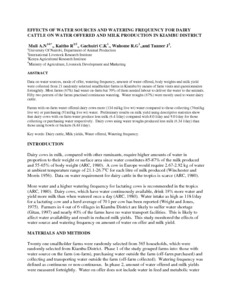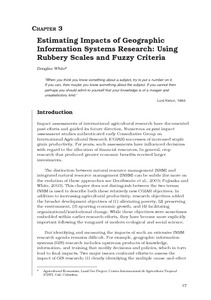Effect of grazing on plant attributes and hydrological properties in the sloping lands of the East African highlands
Extending livestock grazing to the steep slopes has led to unstable grazing systems in the East African Highlands, and new solutions and approaches are needed to ameliorate the current situation. This work was aimed at studying the effect of livestock grazing on plant attributes and hydrological properties. The study was conducted from 1996 to 2000 at the International Livestock Research Institute at Debre Ziet Research Station. Two sites were selected: one at 0-4% slope, and the other at 4-8% slope.



